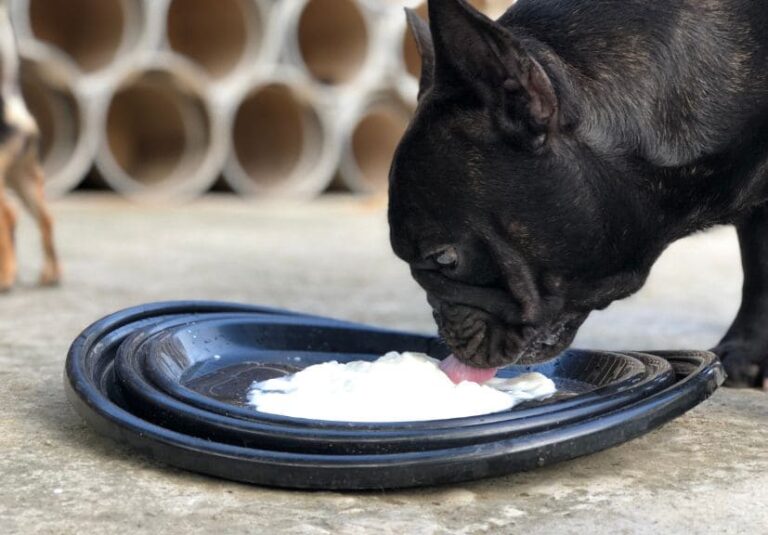Understanding Heartworm Disease in Dogs
A parasitic worm known as Dirofilaria immitis is the source of heartworm disease and is spread via mosquito bites. When an infected mosquito bites a dog, larvae that turn into adult worms live in the dog’s heart, lungs, and blood vessels. If left untreated, these worms may reach 12 inches and gradually cause significant harm.
Symptoms of Heartworm Disease in Dogs
The effectiveness of therapy can be significantly impacted by early detection of heartworm disease signs. Dogs may exhibit modest symptoms, including exhaustion, decreased appetite, and coughing in the early stages. As the illness worsens, more severe symptoms, including breathing problems, weight loss, and even fainting, may appear. Frequent veterinarian examinations are necessary for early detection using blood testing and other diagnostic techniques.
Prevention of Heartworm Disease
It is always preferable to prevent heartworm disease than to treat it. Several efficient preventative methods are available, including yearly injections from your veterinarian and monthly oral treatments—these drugs kill the larvae before they become adult worms. Controlling the environment, such as getting rid of standing water and applying insect repellents to limit your dog’s exposure to mosquitoes, can lower the risk of illness.
Diagnosis of Heartworm Disease
If you live where heartworm disease is typical or if you think your dog may have the condition, it’s essential to have your dog tested regularly. Diagnostic testing can be done using microfilaria (finding immature heartworm larvae in the bloodstream) or antigen (finding proteins produced by adult female heartworms). To determine the extent of the infection, your veterinarian may also employ imaging methods like ultrasounds or X-rays.
Treatment of Heartworm Disease
Treating heartworm disease is more complicated and complex than preventing it. Treatment usually entails a multi-step process to eradicate adult worms, lessen inflammation, and handle consequences. Melarsomine is the primary medication that injectable therapy uses to eliminate adult heartworms. To reduce problems throughout the recovery phase, this treatment strategy calls for stringent rest and activity limitations.
Recovery and Post-treatment Care
To be sure the illness has been effectively treated, your dog will require close observation and further tests after therapy. Adhering to your veterinarian’s post-treatment care recommendations is crucial. These instructions may involve taking extra medicine to avoid secondary infections and scheduling routine checkups to track your dog’s healing. To prevent re-infection, consistently continuing your heartworm preventive program throughout this period is critical.
Preserving Your Dog’s Health Long-Term
Regular veterinary checkups and heartworm testing should be top priorities in your dog’s overall wellness regimen to safeguard their long-term health. Even in the winter, when mosquitoes may appear less common, it is crucial to continue a heartworm preventive regimen throughout the year. Share information with people about the dangers of heartworm illness and the significance of taking preventative steps to guarantee that your dog has a long, healthy life free from this potentially fatal parasite.
Heartworm disease can wreak havoc on your dog’s health. Learn how to prevent, detect, and treat it. Visit PetJazeera for a deep dive into keeping your pup safe from various dangerous medical conditions!
Conclusion
To sum up, treating heartworm diseases in dogs requires a proactive strategy for prevention, prompt discovery, and all-encompassing care. By being knowledgeable, collaborating closely with your veterinarian, and taking preventive action, you may significantly lower your dog’s chance of developing heartworm disease and protect its health. Recall that protecting your dog from this avoidable but dangerous illness requires a commitment to its welfare.
What are the first signs of heartworms in dogs?
The initial signs of heartworm disease in dogs include coughing, especially after exercise or excitement, fatigue, decreased appetite, and weight loss. As the disease progresses, dogs may develop difficulty breathing and a swollen abdomen due to heart and lung damage.
How does a dog get heartworm disease?
Dogs acquire heartworm disease through mosquito bites. When a mosquito carrying infective heartworm larvae bites a dog, the larvae enter through the bite wound and migrate through the dog’s body. Over several months, the larvae mature into adult heartworms, residing in the heart, lungs, and blood vessels.
Can a dog completely be cured of heartworms?
Dogs can be successfully treated and cured of heartworm disease under veterinary care. Treatment involves killing adult worms with medications and managing any complications caused by the disease. It’s crucial to follow the veterinarian’s guidance for the best outcome.
What dogs are at risk for heartworm?
Dogs living in regions with a high mosquito population are at risk for heartworm. Outdoor and active dogs, as well as those not on preventive medications, are particularly vulnerable. Breeds commonly affected include retrievers, German shepherds, and spaniels, but all dogs are susceptible.
What kills heartworms in dogs?
Heartworms in dogs are killed using medications prescribed by veterinarians. Treatment typically involves medications to eliminate adult worms and may include additional therapies to manage symptoms and support recovery. Following the entire treatment protocol is crucial to eliminate the parasites effectively.
Are heartworms painful for dogs?
Yes, heartworm disease can be painful and detrimental to dogs’ health. As the worms grow and multiply within the heart, lungs, and blood vessels, they can cause inflammation, obstruct blood flow, and lead to severe complications such as heart failure. Early detection and treatment are essential for minimizing suffering and improving!




